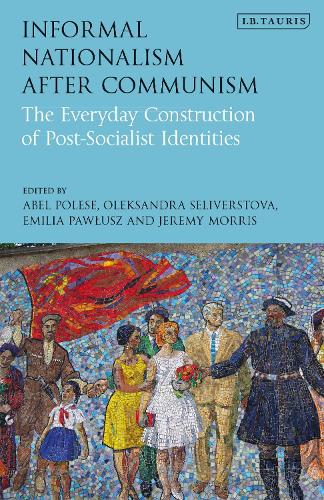
Informal Nationalism After Communism: The Everyday Construction of Post-Socialist Identities
(Paperback)
Publishing Details
Informal Nationalism After Communism: The Everyday Construction of Post-Socialist Identities
By (Author) Abel Polese
Edited by Oleksandra Seliverstova
Edited by Emilia Pawlusz
Edited by Dr Jeremy Morris
Bloomsbury Publishing PLC
I.B. Tauris
19th September 2019
United Kingdom
Classifications
Tertiary Education
Non Fiction
306.091717
Physical Properties
Paperback
232
Width 138mm, Height 216mm
277g
Description
Since the collapse of the Soviet Union, nation building and identity construction in the post-socialist region have been the subject of extensive academic research. The majority of these studies have taken a 'top-down' approach - focusing on the variety of ways in which governments have sought to define the nascent nation states - and in the process have often oversimplified the complex and overlapping processes at play across the region. Drawing on research on the Balkans, Central Asia, the Caucasus and Eastern Europe, this book focuses instead on the role of non-traditional, non-politicised and non-elite actors in the construction of identity. Across topics as diverse as school textbooks, turbofolk and home decoration, contributors - each an academic with extensive on-the-ground experience - identify and analyse the ways that individuals living across the post-socialist region redefine identity on a daily basis, often by manipulating and adapting state policy.In the process, Nation Building in the Post-Socialist Region demonstrates the necessity of holistic, trans-national and inter-disciplinary approaches to national identity construction rather than studies limited to a single-state territory. This is important reading for all scholars and policymakers working on the post-socialist region.
Reviews
Informal Nationalism after Communism is a captivating collection of papers, and an intriguing dialogue between schools and scholars, places and countries, perspectives and focuses, topic, generations and views. In my opinion, it is one of the most valuable recent publications on mundane national identities. * Eurasian Economics and Geography *
Author Bio
Abel Polese is a senior research fellow at Tallinn University. Oleksandra Seliverstova has just finished her PhD at the Free University of Brussels and Tallinn University (jointly awarded). Emilia Pawlusz is a Marie Curie fellow in the School of Governance, Law and Society at Tallinn University. Jeremy Morris is an associate professor at the School of Culture and Society, Aarhus University.
